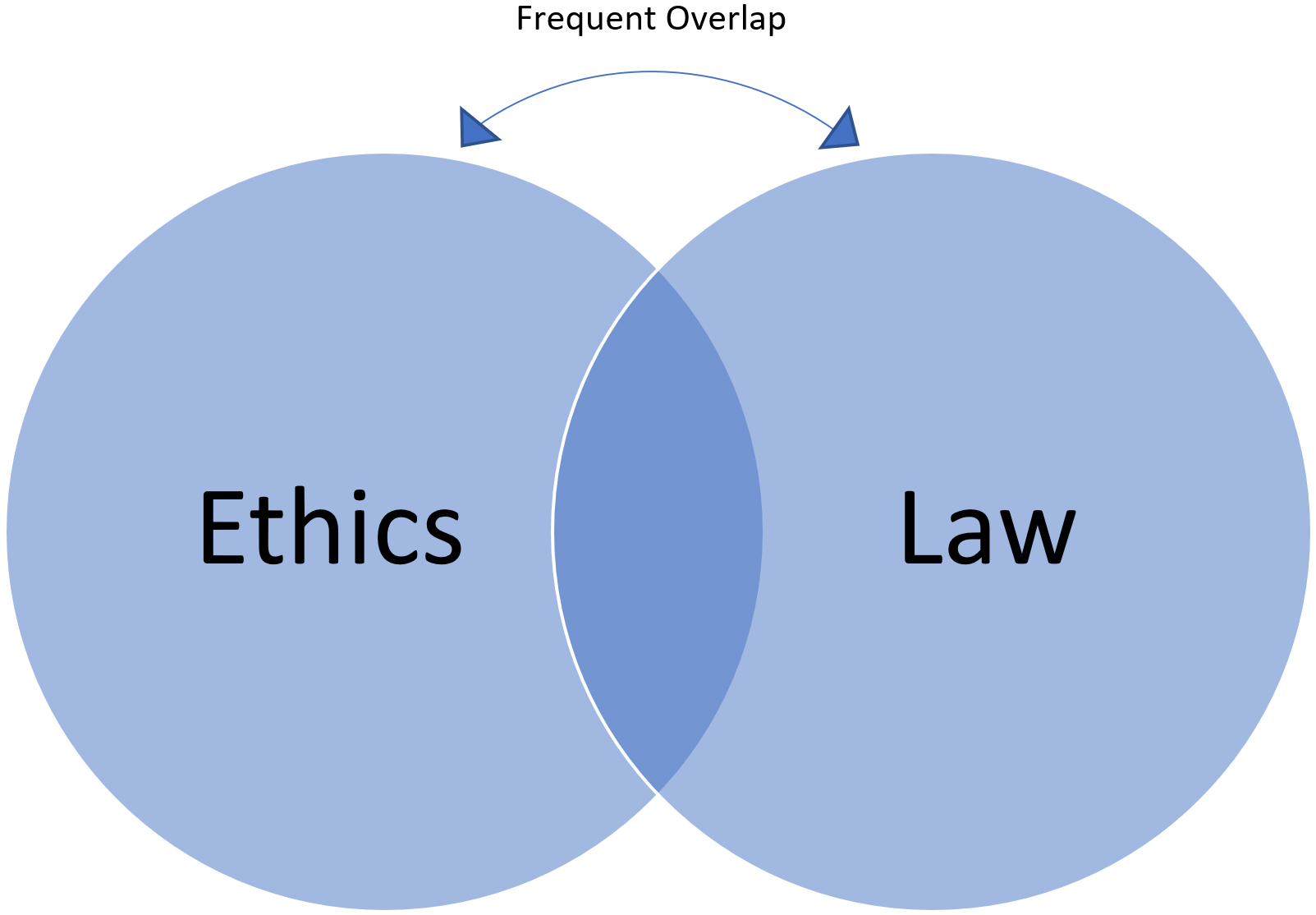6 Ethics and Morality
What are ethics and morality? Ethics are the moral principles that govern one’s behavior or one’s conduct of an activity. It is the collective drive (obeying company rules, stopping at a stop sign even when there are no cars or persons in the vicinity, waiting your turn in line at the cashier) that makes an individual person do something or not do something. The collective doing of things makes living among one another better and easier. Morality, on the other hand, is behavior distinguishing right from wrong. What is the difference? Ethics and morals both relate to right and wrong conduct. While they can be sometimes used interchangeably, they are different:
- Ethics refers to rules provided by an external source (code of conduct in a workplace).
- Morality refers to an individual’s own principles regarding what’s right and wrong (our personal and individual upbringings).
Both morality and ethics are ever changing and are always fluid. Our notions of what is right and wrong is constantly at risk of being upended. This is true in both society and within our own personal concepts of what we consider to be moral.
So, what do we expect of lawyers? We expect them to be reasonable. The term reasonable, when used in relation to conduct by a lawyer, denotes the conduct of a reasonably prudent and competent lawyer (ABA Model Rule 1.0 Terminology).
We expect lawyers to look at every client, case, situation, and consider, how can I best handle this? What that actually means is what we will discuss in this book.

Let’s go back to our original questions: Why do we discuss legal ethics? And why do you need to know about legal ethics? There are many different reasons.
- At their core, the ABA Model Rules focus on regulating three categories of relationships.
- The relationship between a lawyer and their client.
- The relationship between a lawyer and the public.
- The relationship a lawyer has with other lawyers, whether in litigation or as part of a transaction.
Each of these relationships are scrutinized by the public and the profession. Therefore, lawyers should care about legal ethics. However, even in the absence of scrutiny, ethics give real and practical guidance to lawyers. It gives the legal profession purpose.
- Are attorneys disciplined for ethical violations? Should they be? Many lawyers believe that the risk of violating an ethical rule is simply: the price of misconduct discounted by the probability of enforcement. Lawyers must be “caught” and “turned in” before they can be disciplined. How is that done? Should it be done more often? Who should do it?